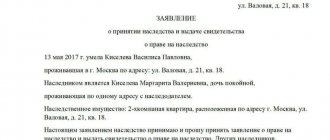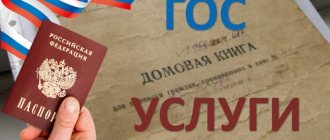When a misfortune occurs such as the death of a person, the course of action depends on where it happened. Death situations can be different, so it is important to understand what to do. For example, if a person died at home, then you need to call not only an ambulance to confirm the death of the deceased, but also the police.
Unfortunately, death can be accompanied by other troubles. For example, ritual agents often come and extort money. If you are faced with this situation and do not know what to do, contact a lawyer.
Do you want to figure it out, but don’t have time to read the article? Lawyers will help
Entrust the task to professionals. Lawyers will complete the order at the cost you specify
11 lawyers on RTIGER.com can help with this issue
Solve the issue >
Content:
- Transporting the deceased to the morgue
- Medical report from the morgue
- Registration of a death certificate
- Death in another country or city
- Receiving burial benefits
- Certificate of burial
- Registration of inheritance
When faced with the loss of a loved one, not everyone knows what to do in such a situation, what documents need to be drawn up after death, or how to properly organize a funeral ceremony. In moments of trouble, it is easy to get confused, because many papers should be collected in the first days after death. In this article, we tried to collect for you the most important information on preparing for a burial and tell you about all the features of preparing documentation for a funeral.
Is it necessary to deregister the deceased?
It is necessary to discharge the deceased, and not only because the law requires it , but also for the following reasons:
- the deceased person registered in the apartment will be charged utility bills;
- it is impossible to obtain a subsidy;
- in the certificate of residence, wherever it is presented, the deceased will also be included;
- if he was the owner, then it is necessary to re-register ownership, and if he was the tenant of a municipal apartment, then register the lease to another family member.
What laws govern it?
Cancellation of the registration of a deceased citizen is regulated by paragraphs “d” and “e” of paragraph 31 of part 5 of the Registration Rules..., approved. RF PP No. 713, but nowhere is the time frame indicated when the deceased should be deregistered.
It is important for the household members themselves to do this as quickly as possible, otherwise other matters related to the re-registration of property, etc., will be delayed.
To terminate registration in relation to the deceased, it is necessary to take certain actions, depending on who owns the apartment, whether the deceased person was the owner, co-owner, or tenant.
Find out about the possibilities of remote checkout from an apartment through State Services!
The following materials on the topic of leaving an apartment may also be useful:
- How does the check-out from an apartment occur when it is sold by the owner?
- Can and how can a person be evicted from an apartment without the consent of a person if he is the owner?
- Is it possible to check out of an apartment through State Services and the MFC while in another city?
- How to discharge a registered person from a privatized apartment?
- Is it possible to discharge a disabled person from an apartment without his consent?
- How to eject a non-owner from an apartment without consent?
- How to expel your ex-husband from an apartment if he is not the owner?
- How to draw up a power of attorney for discharge from an apartment according to the sample in order to carry out the procedure without the presence of a person?
- What to do if you bought an apartment with a registered person and how to register him?
Transporting the deceased to the morgue
If a person died at home, immediately after death the relatives need to call an ambulance and the police. Upon arrival, the staff will inspect the body and provide several documents that will be required later when organizing the funeral. Emergency doctors write out inspection and death certificates, and law enforcement officers write out a body examination protocol.
If the police have doubts about the cause of death, the deceased may be taken for a forensic examination. If a violent death is discovered, a criminal case will be initiated. If a person dies naturally, a decision is made to refuse to initiate a case. In any case, the body can be collected only with written permission from the prosecutor's office or police.
Priority actions for the person who finds the body
It doesn’t matter whether you have found the lifeless body of a relative or even a complete stranger, the first thing you should do is contact emergency services. Ambulance numbers “103” and law enforcement numbers “102” are dialed the same way from landline and mobile phones. Report the incident to dispatchers, identify yourself and the locality where the tragedy occurred. Next, your appeal will be transmitted through their own channels and duty teams from the nearest regional center will go to the site.
Calling a ritual agent
city funeral service
Funeral arrangements
in St. Petersburg and the region
Documents for burial
according to the legislation of the Russian Federation
Be sure to wait for emergency personnel to arrive. Under the protocol, report the circumstances of the discovery of the deceased, if you know, then his personal data and which of his relatives can be contacted promptly. It would be even better to contact the household of the deceased before the police and doctor arrive, of course, if you have their contact number. If there are witnesses to the tragedy that occurred, it is highly desirable that they also give their testimony. Or at least those people who, like you, accidentally discovered the deceased.
After drawing up a protocol and a preliminary diagnosis of death, the corpse is sent to the morgue. Take the time to write down in which locality the body will be kept until burial. This will greatly oblige the relatives of the deceased. If the death occurred under unclear circumstances or there is a suspicion of violence, albeit unintentional, poisoning, etc., then the deceased will be sent to the forensic morgue. In this case, an autopsy is mandatory and no reasons, including religious ones, can prevent this.
Registration of a death certificate
The mandatory list of documents after death includes a certificate from the registry office, which confirms the death of a person. It is drawn up on stamped paper and provided to relatives free of charge. To obtain a certificate, you must visit the registry office with the following package of documentation:
- passport of the responsible person;
- medical certificate of death from the morgue;
- ID of the deceased;
- application in form No. 16 (drawn up at the registry office when issuing a certificate).
The document is issued on the same day of application. Recipients can be relatives or legal representatives. Based on this, further preparations for the burial can be carried out. The paper will be required when registering a grave in a cemetery, carrying out cremation, receiving benefits and payments for burial, as well as when entering into inheritance rights.
Documents for burial in a related grave
Documents for a related burial differ from those needed to register a burial in a new grave. To conduct a relative subburial or burial in a family (family) grave, the following documents will be required:
- Stamp certificate of death: issued by the MFC.
- Passport or identity card of the funeral organizer on the part of the deceased.
- An agreement for the provision of services with the funeral service to which you have entrusted the organization of the burial.
- Cash receipt or form BO-13 (order for funeral services/goods): issued by the funeral service to which you entrusted the organization of the burial.
- Burial passport (burial certificate):
- in the case of a family burial, issued when purchasing a family (ancestral) plot at an open auction of the Moscow Department of Trade and Services or directly from the Moscow Department of Trade and Services in case of an emergency;
- In the case of a related subburial, the burial passport is kept by the person in charge of the grave.
- Documents certifying the relationship of the deceased with the already buried in the case of a related subburial: marriage certificate, birth certificate, court decision on adoption, court decision on recognition of kinship, etc.
Death in another country or city
The death of a person in another city or state is a separate case that requires the collection of a large package of documentation according to the characteristics of the region. As a rule, the hospital where the deceased died is responsible for issuing a medical certificate in such a situation. To deliver the deceased to his hometown, you will need to organize the transportation of “cargo-200”. For such a service, it is advisable to contact specialized funeral companies.
To transport a body by plane, you must prepare the following documentation:
- death certificate;
- certificate of embalming;
- SES certificate;
- a document confirming the absence of foreign objects in the coffin;
- ID card of the accompanying person.
In the event of death abroad, all questions regarding transportation are taken over by the consulate. For transportation, you will need the deceased's passport, his visa (if available), and a medical death certificate indicating that the person died abroad.
Documents for cremation
If the body of the deceased is cremated, his relatives will need a set of documents:
- Stamp death certificate: issued by the MFC.
- Passport or identity card of the funeral organizer on the part of the deceased.
- An agreement on cremation of the remains of the deceased and a receipt for payment for crematorium services: issued by the crematorium where the cremation takes place.
- Certificate “of no objection to cremation” from the Investigative Committee of the Russian Federation: required only if the death was not due to illness or natural causes; issued by the local department of the RF IC.
Receiving burial benefits
Any person who has assumed the responsibility for conducting a funeral has the right to receive social benefits from the state. Its size is set by local authorities and may vary in each region of the Russian Federation. Payments are made on the day of application based on the following documentation:
- application for benefits;
- death certificate;
- applicant's passport;
- death certificate;
- Bank details for transferring funds.
The application must be submitted no later than 6 months from the date of death. You should apply for benefits to the organization according to the status of the deceased. So, if a person was working at the time of his death, the funds are paid at the place of his employment. If the deceased was unemployed, the application is submitted to the social protection department at the place of registration, for pensioners - to the territorial division of the Pension Fund of the Russian Federation. The military commissariat is responsible for issuing benefits for military personnel.
Deadlines for discharge of the deceased
The time period within which the deceased must be discharged is not established by law. However, if you postpone this procedure, then the person will continue to receive payments for utilities. It will not be possible to sell the apartment, since for this transaction to take place there must be no encumbrances.
It is possible to recalculate housing and communal services payments to return overpaid amounts. To do this, it is necessary to remove the deceased from the register and provide utility services with receipts for payment of housing and communal services for the period from the moment of death. You will also need to write an application requesting a recalculation of the amounts paid for housing and communal services since the date of death of the former tenant.
If you refuse to recalculate, you must go to court. It is recommended that the application be accompanied by a written negative decision indicating the reasons, the company seal and the signature of an authorized employee.
Sometimes people deliberately delay the discharge of a deceased person, wanting to receive the benefits accrued to him for paying for housing and communal services. But such actions will lead to litigation with public utilities - the court will definitely side with them. Such benefits are not inherited, so relatives of the deceased cannot take advantage of them.
Registration of inheritance
If the deceased was the owner of a house or apartment, after his death the relatives need to enter into the rights of inheritance of property. Real estate and other valuables are transferred to loved ones by law or will. In both cases, the inheritance should be formalized within 6 months from the moment of transition to another world. To enter into inheritance, you must visit a notary and submit the appropriate application. Attached to the application:
- applicant's passport;
- death certificate;
- will (if any);
- an extract from the house register or personal account about the place of registration of the deceased;
- confirmation of kinship (in the absence of a will).
The application can be submitted in person or through a legal representative. In the latter case, a notarized power of attorney in his name will be required. In order for a notary to provide a certificate of inheritance, he must know what the deceased's property includes. For these purposes, title documents for real estate are attached to the application. In the case of a car, you need to have a vehicle passport, a car registration certificate, and a certificate of market valuation of the vehicle.
If you don’t know what to do after the death of a relative, what documents to collect for the funeral, contact the “Honest Agent” funeral service for help. Our specialists have extensive experience in organizing funeral events and are ready to take on all issues with documentation. We will help you quickly collect the necessary papers and conduct the burial of a deceased relative at a high professional level.
Tell your friends:
What documents need to be completed in the first six months after a person’s death?
Most of the papers are completed in the first days, as they are needed for the funeral. After this, the question remains about the property of the deceased person and funeral benefits.
Documents for receiving inheritance
If the deceased person left a will, then the situation becomes simpler. On a certain day it is opened, the heirs find out what is owed to them.
If there is no will, the heirs must declare their rights within six months. To do this, you need to contact a notary with a death certificate. The specialist will explain all the information on a specific case, including the package of documents necessary for inheritance:
- heir's passport;
- application of the heir to accept the inheritance;
- death certificate of a relative;
- documents on the property of the deceased person.
Additionally, other documentation may be required. It all depends on the individual characteristics of the case.
It is necessary to formalize the inheritance in the first six months. After this period, access to the registration can be restored only through the court.
To learn how to enter into an inheritance, watch the following video:
Place a monument or tombstone
Immediately after the funeral, it is customary to install a temporary monument at the grave. In Orthodoxy, this is a forged or wooden cross. In Islam - an ordinary column with a sign. A year later, when the earth settles after burial, a tombstone made of granite or marble is installed. Caring for natural or artificial stone has its own characteristics, since improper use of chemically active substances can simply ruin its appearance.
Place a monument on the grave and improve it
When to place a monument on a grave? Act immediately. There is a widespread belief that until the ground settles, there is no point in installing a monument. This is not entirely true. It’s better to start preparing immediately after 40 days: decide what the monument will be like. Choose a ready-made project or order your own version based on an individual sketch.
Begin work on strengthening the grave in the spring. Cover the grave with reinforced concrete beams and lay a concrete base on top of them. After this, you can erect a monument in the summer - it is securely strengthened and insured against ground subsidence and distortion.
You might be interested:
- Money for funeral
- Heirs' rights
- What to do with the things of the deceased
March 22, 2019
Receive payment under compulsory motor liability insurance after the funeral
In case of death of a person in an accident, compulsory motor liability insurance guarantees that his family members will receive insurance in the amount of up to 500,000 rubles. from the insurance company. Federal Law No. 40 of April 25, 2002 “On compulsory motor liability insurance”) describes the mechanism for paying compulsory motor liability insurance in the event of death.
Important to remember:
- 500 thousand rubles – this is the total maximum amount, and not the amount of compensation per applicant;
- Only one relative of the deceased can claim compensation;
- insurance is paid once and at a time;
- if the accident causes the death of several victims, the insurance is divided equally between the applicants;
- payment under compulsory motor liability insurance in the event of death is made 20 working days after the first application was received by the insurance company.









